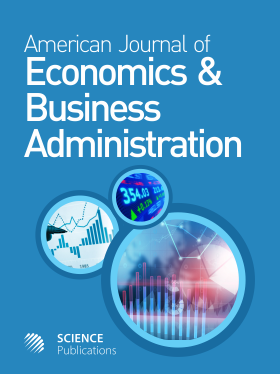Seller Concentration in the Grain Milling Industry
- 1 Midlands State University, Zimbabwe
- 2 School of Business and Management, Namibia
Abstract
Problem statement: The main purpose of the study was to explore the levels of concentration in Zimbabwe’s grain-milling industry during period 1985-2005. The study could not be extended to periods after 2005 because the situation in the country had become economically chaotic. Approach: The methodology adopted involved the calculation of the concentration indices such as the Herfindall-Hirschman index, Hannah and Kay index, the Entropy index and the Four-Firm Concentration ratio. Results: The study revealed that liberalisation of the industry reduced seller concentration levels. The response to deregulation in this particular sector confirms the theoretical expectation that liberalisation promotes competition and reduces market power of existing firms, which is also consistent with the world-wide trends. Conclusion: The policies adopted at the inception of Economic Structural Adjustment Programmed (ESAP) should be pursued more vigorously to create a manufacturing base which is open to competition and which is insulated from adverse effects of possible manipulation by a few large firms. Policy should be aimed at maintaining affordability of the basic commodities to the consumers as well as ensuring viability to the manufacturers. With high levels of industrial concentration, producers are able to operate at a higher-cost system without losing market share, but this is to the detriment of the consumers.
DOI: https://doi.org/10.3844/ajebasp.2010.247.252

- 4,415 Views
- 3,211 Downloads
- 2 Citations
Download
Keywords
- Concentration
- concentration ratio
- oligopoly
- grain milling
- liberalisation
- ESAP
